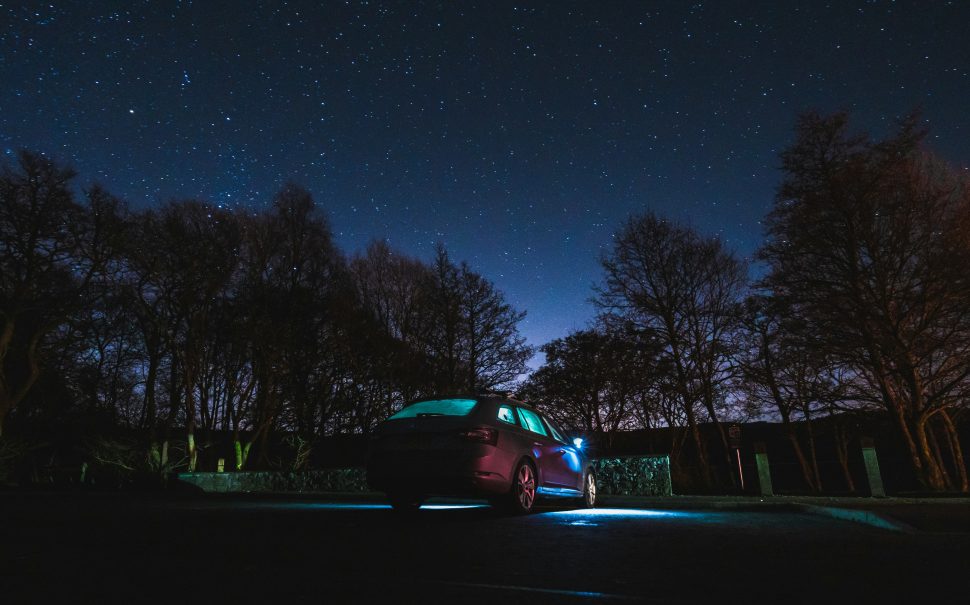Night driving in the UK, as in many other countries, is associated with a number of concerns for drivers.
Drivers try to avoid night driving because of the increased stress and risks involved.
Uncertainty on the road at night can lead to more accidents and a poorer driving experience.
Reasons for not driving at night
Many Britons report that the main reason they avoid driving at night is the bright headlights of other cars, which can be blinding and interfere with safe navigation.
According to a survey by the RAC, 64% of drivers in the UK believe that too bright headlights can cause an accident, and 7% of respondents admit that they avoid driving at night because of the strong glare of headlights.
Modern car headlights are too bright and cause discomfort for other drivers at night.
For example, the BMW 1series headlight are quite bright, they can blind oncoming drivers.
And with the advent of laser headlights offered by BMW and some other manufacturers, the problem of bright light has become even more urgent.
Although laser headlights provide a more powerful and longer beam of light, they can also pose a danger to other road users.
It is well known that the risk of an accident at night is much higher than during the day.
Some British people are also reluctant to drive at night for the following reasons:
- Poor visibility due to deteriorating weather conditions
- Fatigue
- The risk of collisions with wildlife on country roads
- Lack of experience in night driving
Danger of faulty or too bright headlights
Driving with faulty headlights, even if only one is out of order, can significantly increase the risk of accidents.
Insufficient road lighting reduces the driver’s reaction to obstacles, and other drivers may not be able to see the car in time.
In addition, driving with faulty headlights is punishable by a fine.
As mentioned above, excessively bright headlights, such as xenon or laser, can blind other drivers, which also poses a safety risk.
Which headlights are better: LED or Xenon?
The choice between LED and xenon headlights depends on many factors, such as budget, car model and personal preference.
LED headlights respond faster to changes in operating mode, provide uniform illumination and consume less energy.
Their light is less aggressive for oncoming drivers, and they have a long service life.
Xenon headlights are known for their brighter light and longer lighting range.
However, they can be too bright for other drivers if not properly adjusted.
As a result, LED headlights are becoming increasingly popular due to their energy efficiency and comfort for oncoming traffic, although xenon headlights remain a good option for those looking for maximum visibility on the road.
The problem of night driving in the UK is an urgent one that requires a comprehensive solution.
To improve safety on the roads, it is necessary to comply with traffic rules, regularly check the technical condition of the vehicle and choose headlights that provide optimal visibility without causing discomfort to other road users.
Statistical and useful information:





